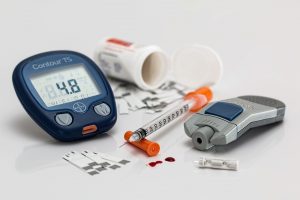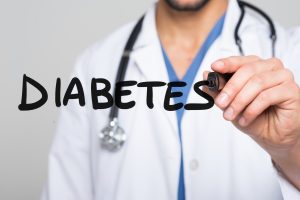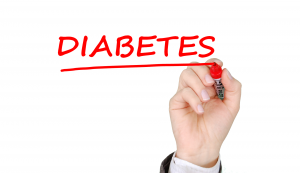 Diabetes is a serious condition that affects the way the body metabolizes sugar. Over 29 million Americans currently suffer from the disease. Of the newly diagnosed cases of diabetes in adults, around 95% are for Type 2 diabetes. Type 2 diabetes occurs when the body produces enough insulin but cannot use insulin properly. Type 2 diabetes results in high blood sugar levels which can cause long-term health problems. So what does all this mean? From the perspective of pharmaceutical companies, it means there is a massive market for Type 2 diabetes drugs. Enter the latest diabetes “wonder drug,” Invokana. Continue reading
Diabetes is a serious condition that affects the way the body metabolizes sugar. Over 29 million Americans currently suffer from the disease. Of the newly diagnosed cases of diabetes in adults, around 95% are for Type 2 diabetes. Type 2 diabetes occurs when the body produces enough insulin but cannot use insulin properly. Type 2 diabetes results in high blood sugar levels which can cause long-term health problems. So what does all this mean? From the perspective of pharmaceutical companies, it means there is a massive market for Type 2 diabetes drugs. Enter the latest diabetes “wonder drug,” Invokana. Continue reading
Articles Tagged with diabetes
SGLT2 Inhibitors: An Overview of Risky Diabetes Drugs

Originally touted as a wonder drug, a new class of medications based on SGLT2 inhibitors promised to help those suffering from Type 2 diabetes by increasing their ability to lower and control their blood sugar, while also lowering body weight and blood pressure. Pharmaceutical companies were hoping that these new products could potentially become blockbuster drugs. Invokana and Farxiga are two examples of SGLT2 inhibitors.
But just a few years after the release of these drugs in the United States, the drug companies started facing stiff competition among themselves. Additionally, the public learned of the serious risks of taking SGLT2 inhibitors. The purpose of this blog post is to provide a quick overview of SGLT2 inhibitor drugs and the status of their litigation.
What Is a SGLT2 Inhibitor?
Invokana: Diabetes Drug Has Caused Alarming Side Effects, Lawsuits
 Diabetes is an awful disease. It is a chronic condition that affects the way the body metabolizes sugar. Diabetes is also a growing health problem in the United States, with over 29 million Americans currently suffering from the disease. Of the newly diagnosed cases of diabetes in adults, approximately 95% are for Type 2 diabetes (sometimes referred to as adult onset). It’s also expected that one out of every three people will develop diabetes in their lifetimes.
Diabetes is an awful disease. It is a chronic condition that affects the way the body metabolizes sugar. Diabetes is also a growing health problem in the United States, with over 29 million Americans currently suffering from the disease. Of the newly diagnosed cases of diabetes in adults, approximately 95% are for Type 2 diabetes (sometimes referred to as adult onset). It’s also expected that one out of every three people will develop diabetes in their lifetimes.
Type 1 diabetes occurs when the human body doesn’t produce enough insulin, a hormone used to help the body absorb glucose. Type 2 diabetes occurs when the human body produces enough insulin, but cannot use insulin properly. Both types of diabetes result in high blood sugar levels which can cause long-term health problems.
What does all this mean? From the perspective of pharmaceutical companies, it means there is a huge market for Type 2 diabetes drugs.
 North Carolina Product Liability Lawyer Blog
North Carolina Product Liability Lawyer Blog

